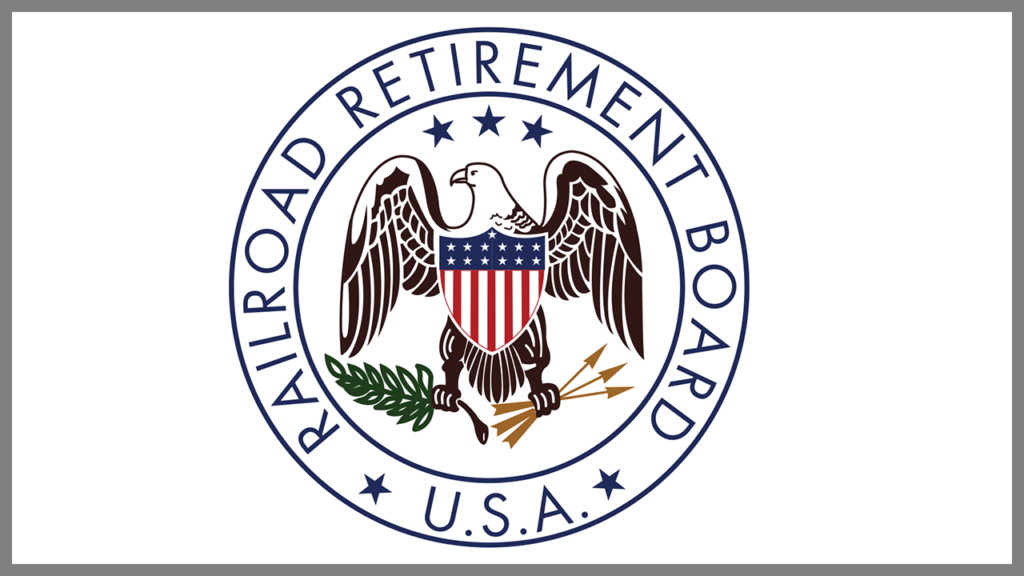
Senate Budget Committee Advances REEF Act
Written by Marybeth Luczak, Executive Editor
The Senate Budget Committee on March 6 voted unanimously to advance the bipartisan Railroad Employee Equity and Fairness (REEF) Act, which aims to protect railroad employees from cuts to unemployment and sickness insurance and eliminate mandated cuts to the Railroad Retirement Board’s Unemployment Insurance Account.
The Committee considered the Act during a markup session and has now placed it on the Senate legislative calendar.
Five rail industry organizations sent a letter to Budget Committee Chairman Sen. Sheldon Whitehouse (D-R.I.) and Senior Republican Sen. Chuck Grassley of Iowa in support of the REEF Act (S. 1274), and encouraged the Senate to pass it (scroll down to download).
“This common-sense, bipartisan bill would eliminate sequester cuts to railroad unemployment and sickness benefits that have unfairly short-changed railroad workers and their families for over a decade,” wrote the American Short Line and Regional Railroad Association (ASLRRA); Association of American Railroads (AAR); International Brotherhood of Teamsters (IBT); Transportation Trades Department, AFL-CIO (TTD); and Amtrak in their March 4 letter. “Railroad workers play a critical role in keeping the passenger and freight rail network safe and our economy moving. They deserve to access the full value of the benefits they have earned. Currently, Railroad Unemployment Insurance Act (RUIA) benefits are the only federal unemployment insurance and sickness benefits program subject to sequestration. Every other American’s unemployment, disability, or sickness benefits are not subject to the same cuts. While we were pleased Congress took steps to eliminate this unnecessary hardship during the COVID-19 National Emergency, that relief ended when the National Emergency was terminated on April 10, 2023, resulting in the resumption of budget sequestration. Railroad workers who receive temporary unemployment and sickness benefits saw a 5.7% cut to their benefit payments starting May 10, 2023. Railroaders who rely on RUIA benefits receive a flat rate of $87 per day, meaning workers now lose up to $50 per two-week benefit period from an already modest stipend. Without Congressional intervention, outdated sequestration will continue to unfairly penalize these workers through Fiscal Year 2030.”
The industry groups pointed out that “[k]eeping this unfair sequestration in place would do nothing to shrink the federal deficit or curb the spending of federal funds collected from ordinary taxpayers because the railroad unemployment and sickness insurance system is entirely funded by the railroad industry.” They explained that “[s]pecial payroll taxes and surcharges applied only to railroads pay into the system’s trust fund and automatically adjust to cover surges in demand and avoid shortfalls.”
According to the groups, “[c]ontinuing to cut these lifeline unemployment and sickness benefits is arbitrary and unfairly targets hardworking railroaders.” That’s one reason, they said, “a bipartisan group of Senators, including Senator Braun, Senator Sanders, Senator Crapo, and Senator Marshall on this [Budget] Committee, have all cosponsored this important piece of legislation.”
Following the Senate Budget Committee vote, Greg Regan and Shari Semelsberger, President and Secretary-Treasurer of the TTD, respectively, issued a statement. “As America’s largest transportation labor federation, which proudly represents rail labor unions and workers across the country, we applaud the Committee’s unanimous decision to pass the REEF Act to fully restore rail workers’ unemployment and sickness benefits,” they said. “This legislation is unanimously endorsed by all of rail labor and is supported by the rail industry as well. … For more than a decade, rail workers have been unfairly targeted by federal cuts to their benefits. … No taxpayer or federal dollars were spent, nor saved, through the reduction of these benefits. Today, Congress acted in a bipartisan effort to end these arbitrary cuts and allow workers to reap the full benefits of this essential program. … We urge the Senate to swiftly hold a Floor Vote on this legislation now that it has passed out of Committee.“

Background
Railway Age Capitol Hill Contributing Editor Frank N. Wilner reported on the REEF Act in September 2023, as part of his Watching Washington column, “Budget Hocus Pocus Targets Rail Workers.”
“Under a guise of reducing federal spending, congressional budget hawks are preventing the payment of a portion of sickness and unemployment benefits owed rail workers,“ Wilner wrote last fall. They also sought to “hobble“ the Railroad Retirement Board’s (RRB) ability “to process and pay rail worker benefits claims by cutting its budget, even though the agency is funded entirely by rail employee and/or railroad payroll taxes,“ he reported.
“The RRB administers and disburses railroad disability, retirement, sickness, survivor and unemployment benefits,“ Wilner explained. “Under federal law, the RRB is a claims-agent and paymaster—an intermediary whose financial transactions appear in the federal budget, although not a penny of federal spending can be saved by the fiscal legerdemain contrived by congressional budget hawks.“
“The rent on RRB’s Chicago headquarters and 53 field offices, as well as wages and fringe benefits paid the RRB’s 728 employees, is funded entirely by payroll taxes assessed rail employees and railroads,“ Wilner continued. “Even the cost of RRB copy machines and their ingredients, computers, telephones and even paper clips, snack room microwaves and coffee makers is funded by these payroll taxes. As for the congressionally slashed sickness and unemployment benefits, they are funded entirely by payroll taxes assessed railroads.“
According to Wilner, instead of “reducing federal spending, these cuts are inflicting monetary pain and mental suffering on rail workers and their families. So wicked is this pickpocketing by Congress that it has uncharacteristically caused rail carriers and rail labor to link arms in solidarity to halt it.“
At issue, Wilner wrote last September, were two “schemes“: “one festering since 2011“ and the second, a part of fall 2023 federal budget negotiations.
Focusing on the 2011 “scheme“, Wilner wrote that a “congressional sleight-of-hand expropriated railroad sickness and unemployment benefits administered and disbursed by the RRB—benefits funded exclusively by railroads and deposited in a dedicated trust fund separate from the Railroad Retirement Trust Fund. Congress slashed them by 5.7%, reducing the already meager biweekly benefit from $870 to $820.41.“
“Employees in no other industry endure such inhumane cuts, as non-railroad sickness and unemployment benefits plans administered by states are exempt from such sequestration,“ Wilner wrote. “Only because the railroad-funded plans are federally administered—owing to the complex interstate nature of rail operations—do they appear in the federal budget.“
(Wilner noted that “the 2011 benefits cuts, suspended by Congress for two years during the COVID-19 pandemic, were restored in May 2023.“ He also cautioned readers not to “confuse RRB administered sickness benefits with recent collectively bargained sick leave, as eligibility for RRB administered sickness benefits—intended for longer term medical issues and injury—is delayed when sick leave is taken.“)
As predicted by Wilner last September, the 5.7% cuts in sickness and unemployment benefits were not restored in the previous session of Congress, “even though the Railroad Employee Equity and Fairness Act (H.R. 2785 and S. 1274) seeks to do so.“
“Ironically and farcically,“ Wilner summed, “railroads are continuing to pay a maximum 12.5% (on each $1,895 of monthly wages) to fund the RRB administered sickness and unemployment plan, plus a 1.5% surcharge to keep the fund’s minimum balance at $100 million, following a spike in furloughs.“
Wilner’s new book, Railroads & Economic Regulation, is available from Simmons-Boardman Books at www.transalert.com, 800-228-9670.



![“This record growth [in fiscal year 2024’s third quarter] is a direct result of our innovative logistic solutions during supply chain disruptions as shippers focus on diversifying their trade lanes,” Port NOLA President and CEO and New Orleans Public Belt (NOPB) CEO Brandy D. Christian said during a May 2 announcement (Port NOLA Photograph)](https://www.railwayage.com/wp-content/uploads/2024/05/portnola-315x168.png)